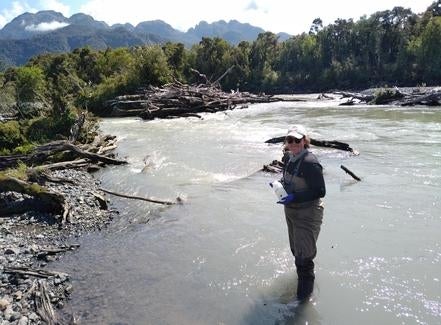Project
Erika was working on environmental DNA (eDNA) for detection of fish in the remote Melimoyu Nature Reserve in Patigonia, Chile.
Co-supervisor Barb Katzenback (Biology)

Undergraduate Thesis
Environmental DNA (eDNA) collection is an emerging technique that uses non-invasive sampling to monitor aquatic organisms. The objective of Erika’s undergraduate thesis is to identify and reduce uncertainties in eDNA methodology used to detect brook trout in lotic systems. The primary foci are the effects of physical disturbances and chemical interferences on eDNA recovery (for example storm events or high concentrations of humic acids). This is accomplished by collecting water samples from a creek in the Grand River watershed with a characterized brook trout population under various disturbance conditions, then extracting and amplifying brook trout DNA in the water via quantitative PCR. Once biases and knowledge gaps in eDNA practises are addressed it can become a powerful tool for monitoring aquatic organisms, including species at risk and invasive species.